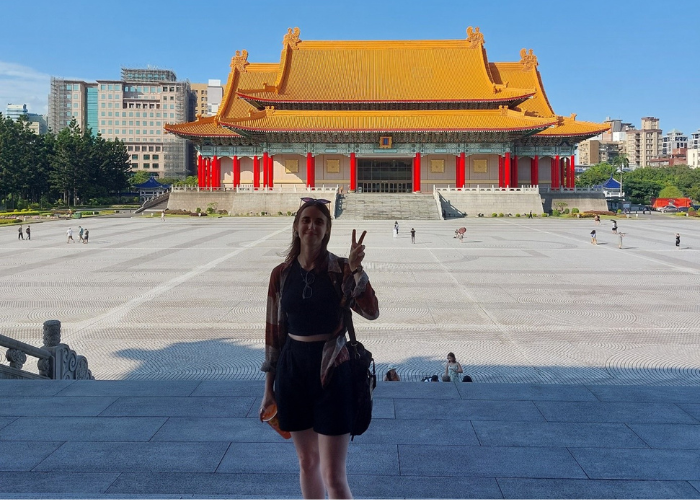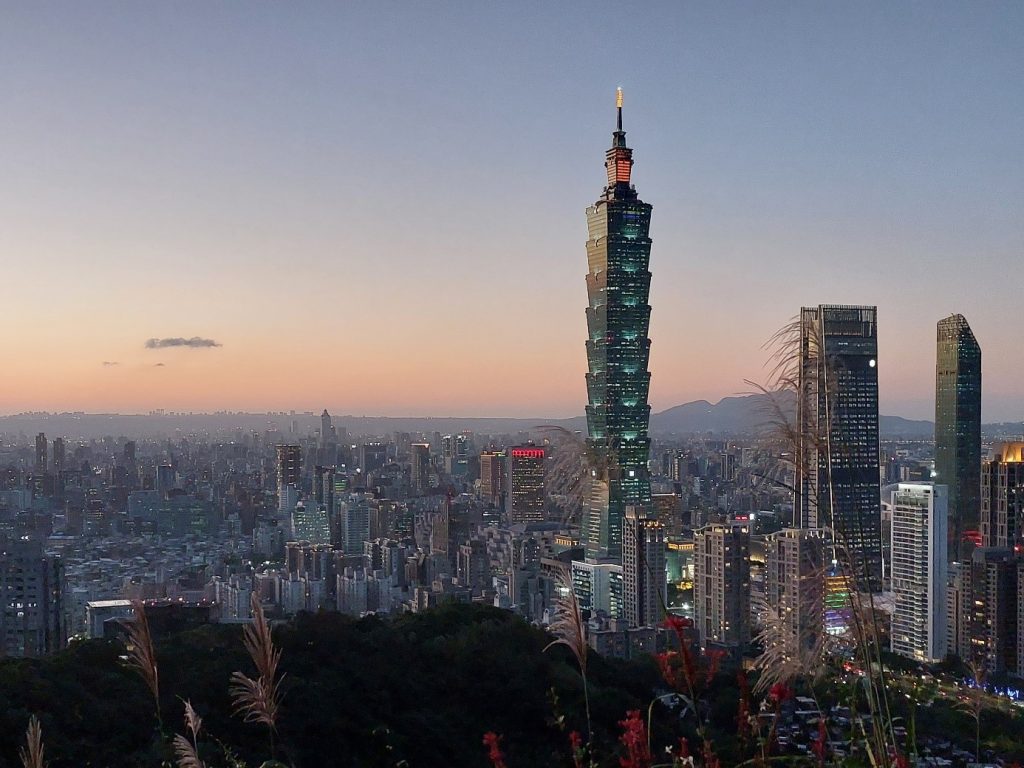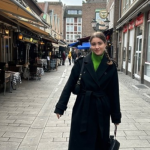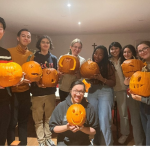Students abroad: Evelina in Taiwan

First, can you tell us something about yourself? What do you study? Where did you spend your exchange stay?
Hi, I’m Evelina and I am currently doing my Masters in Russian and Eurasian Studies at the Institute of International Relations. I had recently returned from Taiwan, where I spent one semester at the National Chengchi University (NCCU) in Taipei thanks to the inter-faculty agreement.
Why did you choose your destination? Previous visit, university reputation, other students’ recommendation, course offer…
Taiwan has been a long-term interest of mine, at first because of its political history and international relations but my interest kept growing the more I learned about the country’s past, identity, and culture. Also, I’m a big fan of the Taiwanese music scene so to be able to see some of my favourite bands there was a big motivation as well.
Aside from those personal reasons, I learned that NCCU is ranked among the best schools for humanities in East Asia. So, on top of that, when I was choosing which school to apply to, after seeing that NCCU offers courses under the Graduate Department of Russian Studies, the choice could not have been easier.

You already have a semester abroad experience. Was your second mobility influenced by the experience?
Yes, during my undergraduate studies I spent one semester in Greece as an Erasmus student. Back then I already considered applying for Taiwan, but I was not yet ready to travel so far away and even doing an exchange abroad in Europe can be quite intimidating and stressful. Furthermore, it was all during the covid, so I didn’t want to risk being so far away. My first semester abroad was a big learning curve, and it gave me so much insight about the whole process that helped me a lot in Taiwan. For example, all the paperwork gets a lot easier the second time around and I knew I should be planning things like insurance, accommodation, transport from the airport a lot in advance. It was still stressful of course but I feel like I had some tools and experience to deal with a lot of situations.
Tell us something regarding your first days. Any acclimatization problem – culture shock?
Very humid, very hot, and very confusing. I think culture shock is to be expected wherever you go, and you have to embrace it and enjoy it. I had the added value of not knowing any Mandarin, although in Taipei you can mostly get around with English. Taiwan is a highly developed country with a high standard of living on par with Czechia, so it was just a matter of getting used to the different food, climate, and environment in general. The most shocking for me was probably the driving – in big cities there are lots of motorbikes and cars, the streets are very hectic and busy, often too narrow, not many sidewalks and drivers don’t always follow the rules. Also, if you’re taking a bus, make sure you haven’t just finished eating dinner because it can feel like riding a roller coaster!
Could you share with us your favourite memory/ experience?
It would be very hard to pick just one. I had an amazing experience in Taiwan and the most precious for me would be meeting lots of amazing people to whom I’ve grown very close to. One of my fondest memories was on the New Year’s Eve, when we had dinner and watched the fireworks near the Taipei 101 skyscraper, after which we went to our favourite spot and celebrated, sang, and just enjoyed the beginning of the new year surrounded by wonderful people.

Would you recommend National Chengchi University to other students?
If you’re majoring in humanities and are interested in studying in East Asia, I would recommend NCCU and Taiwan in general. NCCU offers a lot of variety in terms of courses and specializations, it is one of the best universities in the region when it comes to social sciences, and the professors are experts in their respective fields. On top of that the university itself has many international students and English-taught programs and hosts many academics from all over the world. The classes I took included lectures from guest speakers, I also had the chance to attend several conferences related to my major. The campus may be a bit far from the city centre, but it was a welcomed aspect of my stay. Taipei can get extremely busy and crowded, but the area around NCCU is surrounded by forests, mountains, hiking trails, and bike lanes running along the river.

Going abroad can be financially challenging. What percentage of your costs were covered by the scholarship of the university?
I would say the scholarship covered about a half of my expenses there. Of course, the biggest ones were the plane tickets, accommodation, public transport, and food. In general prices were very similar to what I’m used to in Prague – price of renting is about the same, public transport and groceries were more expensive while eating out was more affordable. It also depends on the city; Taipei is by far the most expensive to live in compared to Kaohsiung or Taichung.
Can you think of five „must know“ before setting on a semester abroad in Taiwan?
- The climate – very different from Czechia, it gets really hot and humid in summer, surprisingly cold in winter and it rains often, so definitely bring an umbrella.
- Easy card – it’s going to be your best friend in Taiwan. It’s like Prague’s Lítačka but so much better. You can use it for public transport all over the country, pay in convenience and grocery stores, rent a bike, pay for the ZOO entrance, cable car or boat rides and so much more. Also, you can choose from lots of designs – I had two, one with Gudetama and another with Hello Kitty.
- Trash collection – usually twice a day, garbage trucks come to collect trash from the residents. There are no communal trash cans like in Czechia, so you must personally throw your household trash out during those times into the garbage trucks while they play Beethoven’s Fur Elise 🙂
- Danbing is the best breakfast food, trust me.
- Convenience stores – they are literally everywhere, extremely convenient, and open 24/7. You can get fresh soft-serve ice cream there and they are the best place to finish writing your assignments in the middle of the night after the library had already closed.

You are in your final year of your master study. What’s in plan after you graduate?
Currently I’m in my second year but I plan to extend my study and (hopefully) graduate next year. In the meantime, I am focusing on research for my master thesis and continuing learning Mandarin. My stay in Taiwan further deepened my interest in the country so I’m also looking into opportunities to return there to study Mandarin.
Anything IO should do differently or improve to make the preparation for the mobility easier?
My experience with the International Office was definitely positive. Communication in person and by email was very fast and always helpful – whenever I needed information, explanation, or some documents I could always rely on the IO, which made the entire process a lot easier and the administration aspects of the exchange less stressful.


